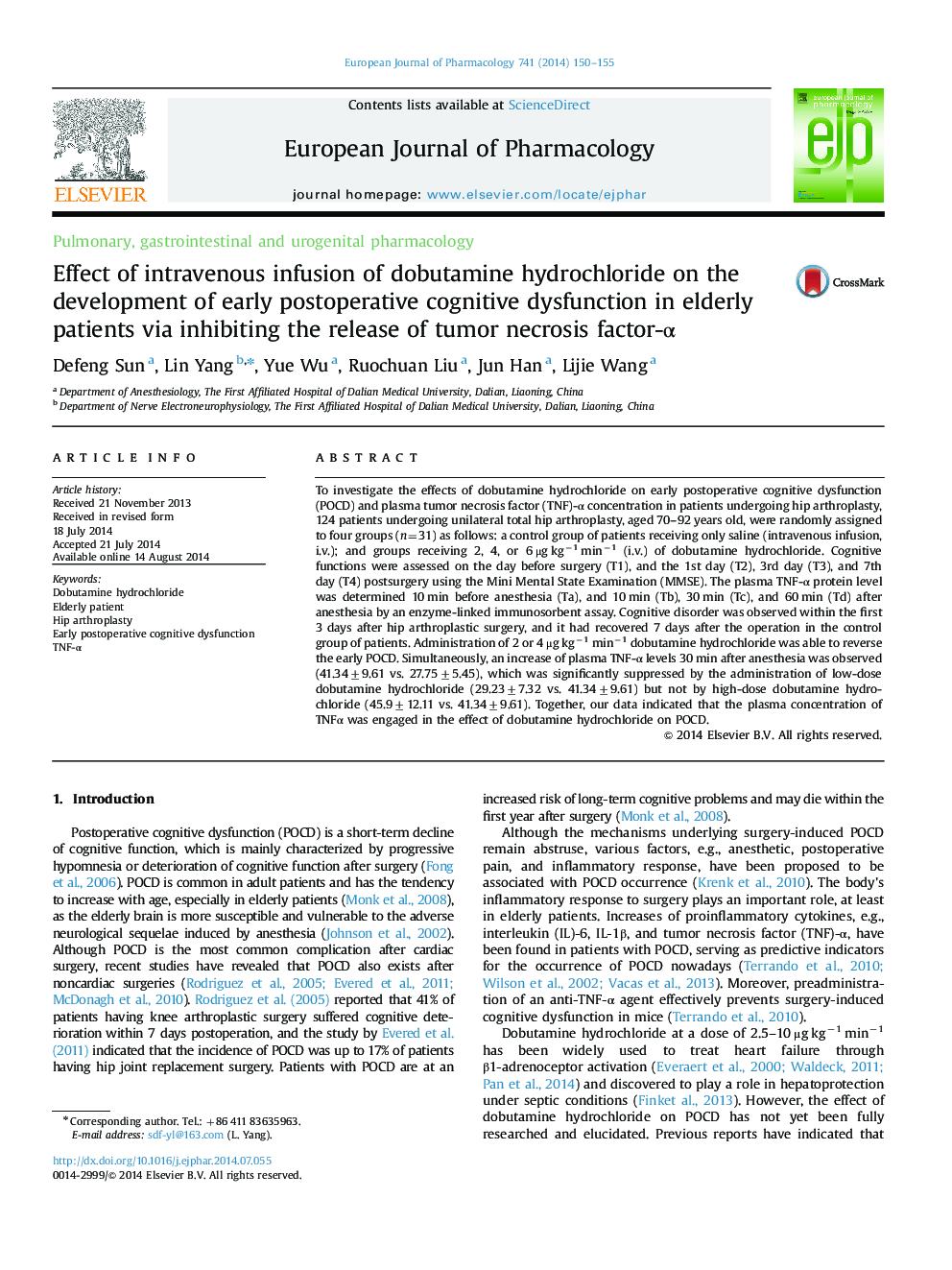| Article ID | Journal | Published Year | Pages | File Type |
|---|---|---|---|---|
| 5827666 | European Journal of Pharmacology | 2014 | 6 Pages |
Abstract
To investigate the effects of dobutamine hydrochloride on early postoperative cognitive dysfunction (POCD) and plasma tumor necrosis factor (TNF)-α concentration in patients undergoing hip arthroplasty, 124 patients undergoing unilateral total hip arthroplasty, aged 70-92 years old, were randomly assigned to four groups (n=31) as follows: a control group of patients receiving only saline (intravenous infusion, i.v.); and groups receiving 2, 4, or 6 μg kgâ1 minâ1 (i.v.) of dobutamine hydrochloride. Cognitive functions were assessed on the day before surgery (T1), and the 1st day (T2), 3rd day (T3), and 7th day (T4) postsurgery using the Mini Mental State Examination (MMSE). The plasma TNF-α protein level was determined 10 min before anesthesia (Ta), and 10 min (Tb), 30 min (Tc), and 60 min (Td) after anesthesia by an enzyme-linked immunosorbent assay. Cognitive disorder was observed within the first 3 days after hip arthroplastic surgery, and it had recovered 7 days after the operation in the control group of patients. Administration of 2 or 4 μg kgâ1 minâ1 dobutamine hydrochloride was able to reverse the early POCD. Simultaneously, an increase of plasma TNF-α levels 30 min after anesthesia was observed (41.34±9.61 vs. 27.75±5.45), which was significantly suppressed by the administration of low-dose dobutamine hydrochloride (29.23±7.32 vs. 41.34±9.61) but not by high-dose dobutamine hydrochloride (45.9±12.11 vs. 41.34±9.61). Together, our data indicated that the plasma concentration of TNFα was engaged in the effect of dobutamine hydrochloride on POCD.
Keywords
Related Topics
Life Sciences
Neuroscience
Cellular and Molecular Neuroscience
Authors
Defeng Sun, Lin Yang, Yue Wu, Ruochuan Liu, Jun Han, Lijie Wang,
